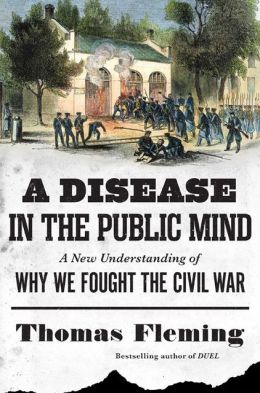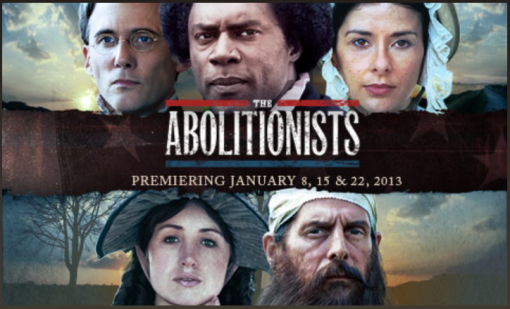“Twelve Years a Slave” Historian Remembered
19 03 2014Comments : Leave a Comment »
Tags: Facebook, History on Film, Slavery, Solomon Northup, Sue Eakin, Twelve Years a Slave
Categories : Facebook, History on Film
“There are three grown negroes there doing nothing, and wants men to build him a kitchen.”
25 06 2013I came across a couple of passages today that got me thinking, the way things get you thinking to the point where you can’t read any further until you sort those thoughts out a bit. Do something about them. My current read is the very fine Voices from Company D, a collection of diaries by members of the Greensboro Guards, 5th Alabama Infantry, edited by G. Ward Hubbs. It really is a must read for anyone studying the war. I’ve had it for a long time and am just getting around to actually reading it, as opposed to skimming. Currently I’m in January of 1863, and this entry by John Henry Cowin (who, despite being a doctor and graduate of Philadelphia’s Jefferson Medical College, served as a private) got me to thinking (p. 138):
January 13, Tuesday…Col. Hall ordered today a detail from the different companies to go to Camp and build him a kitchen. Capt Renfrew refused to send him any man and Capt Williams sent him word that he could not get any more men for such a purpose. There are three grown negroes there doing nothing, and wants men to build him a kitchen.
This got me thinking on two levels (at least), one being that CW armies in many ways were not armies as many of us understand them today, whether that understanding comes from service, study, or simply watching dozens of movies over the years. Many of us tend to think that orders are orders, yet we run across so many instances of orders not necessarily being orders in Civil War armies of independent-minded citizen soldiers. (By the way, Renfro – inconsistent spelling – was arrested the next day, though Williams was not.) The Colonel detailing soldiers for manual labor of a personal nature while more “appropriate” personnel for such duty was available was seen as adding insult to injury. The passage gives the lie to the first line of defense of many who try to downplay the role of slavery as a cause of the war – that only fillintheblank percent of southerners actually owned slaves. As if actual ownership of human chattel was the single criteria for interest in seeing the institution perpetuated. This plays into one of my other on-going interests regarding how slavery as a character-molding fact of life in the south affected the efficiency and capabilities of the Confederate military.
Just three days later, another Cowin entry caught my attention (p. 140):
January 16, Friday…Last night about ten o’clock it began to rain and continued until day light this morning. Six of us were under a fly. (The tent being occupied by Britton’s Servant who is very sick with Typhoid Fever.) Our blankets all got perfectly saturated with the rain, and occasionally a large drop of water would fall in my face rendering all hopes of sleep vain. I could only lay there and amuse myself dodging from the drops of rain and wishing fro day light to come…Britton’s Servant John died today about half past twelve o’clock and was buried this afternoon. No coffin could be procured and he was buried as a soldier, wrapped in his blanket.
This second passage illustrates the complexity of viewing slavery with minds formed in the latter part of the 20th Century. It’s difficult to reconcile the inhuman nature of human bondage with the image of six white men huddled under a tent fly in a rainstorm while a servant, presumably a slave, lies dying as the sole occupant of their nice, dry tent, and with the fact that they made an effort to procure a coffin for the man before burying him “as a soldier.” What do you think?
Comments : 5 Comments »
Tags: 5th Alabama, ACW Books, Articles, Black Confederates, Civil War Armies, Slavery
Categories : Articles, Books
Preview: Thomas Fleming, “A Disease in the Public Mind”
21 06 2013 The questions of what “caused” the American Civil War and whether the conflict was avoidable or inevitable has spawned countless books and articles, running the gamut from balderdash to convincing, but none of which I would say settle those questions fully and finally. Prolific author Thomas Fleming takes a crack at it in A Disease in the Public Mind: A New Understanding of Why We Fought the Civil War, from Da Capo Press. Reviews have been mixed at best, and pretty gnarly at worst. In a nutshell, Fleming argues that the conflict was the outcome of deep-seated sectionalism that predated the founding of the nation. Extremist, abolitionist thinking in the north perhaps even caused a pervasive fear of slave revolt in the south. No bibliography is provided, and notes are heavy with secondary sources.
The questions of what “caused” the American Civil War and whether the conflict was avoidable or inevitable has spawned countless books and articles, running the gamut from balderdash to convincing, but none of which I would say settle those questions fully and finally. Prolific author Thomas Fleming takes a crack at it in A Disease in the Public Mind: A New Understanding of Why We Fought the Civil War, from Da Capo Press. Reviews have been mixed at best, and pretty gnarly at worst. In a nutshell, Fleming argues that the conflict was the outcome of deep-seated sectionalism that predated the founding of the nation. Extremist, abolitionist thinking in the north perhaps even caused a pervasive fear of slave revolt in the south. No bibliography is provided, and notes are heavy with secondary sources.
Comments : 6 Comments »
Tags: ACW Books, Articles, Slavery
Categories : Articles, Books
American Experience: The Abolitionists
7 01 2013Things have been busy around here. Very busy indeed. So, despite having received the discs well in advance, my intention to view each of three episodes of PBS’s American Experience: The Abolitionists prior to their airing remains an intention. I do apologize. But here’s some info: the first part airs tomorrow night (Tuesday, January 8) in the Pittsburgh market, with parts II and III airing on successive Tuesdays. I’ll try to view the 2nd and 3rd parts in advance and hep you to them, but I can’t make any promises. Go here to view more details.
I tend to agree (will wonders never cease?) with the theme of Gary Gallagher’s The Union War that the pendulum has swung a bit too far to slavery as the cause of the war (not from an action standpoint, but from a motivational one, if you get my drift.) There’s too much stridency on the part of the pendulum swingers for my taste, but hey, that’s the way pendulums work. They go from one extreme to the other, right? While there are talking heads involved (usual suspect David Blight is first and foremost, but also a few folks with whom I’m unfamiliar – but “Abolition” titles total only 10 or so volumes of my library so that really doesn’t mean anything), The Abolitionists is a more theatrical presentation, with actors in the lead roles of Frederick Douglass, William Lloyd Garrison, Angelina Grimke, Harriet Beecher Stowe, and John Brown. Most prominent among them, for me at least, is Richard Brooks as Douglass. You may know him better as Assistant DA Paul Robinette on Law and Order or, if you are a hopeless geek, as bounty hunter Jubal Early on Firefly.
Anyway, I will try to be better about filling you in on the next two episodes in advance, but if you want to talk about the show after it airs Tuesday we can do that here or over on the Facebook page.
Comments : 3 Comments »
Tags: American Experience, Articles, History on Film, Slavery, Television, The Abolitionists
Categories : Articles, History on Film


Recent Comments